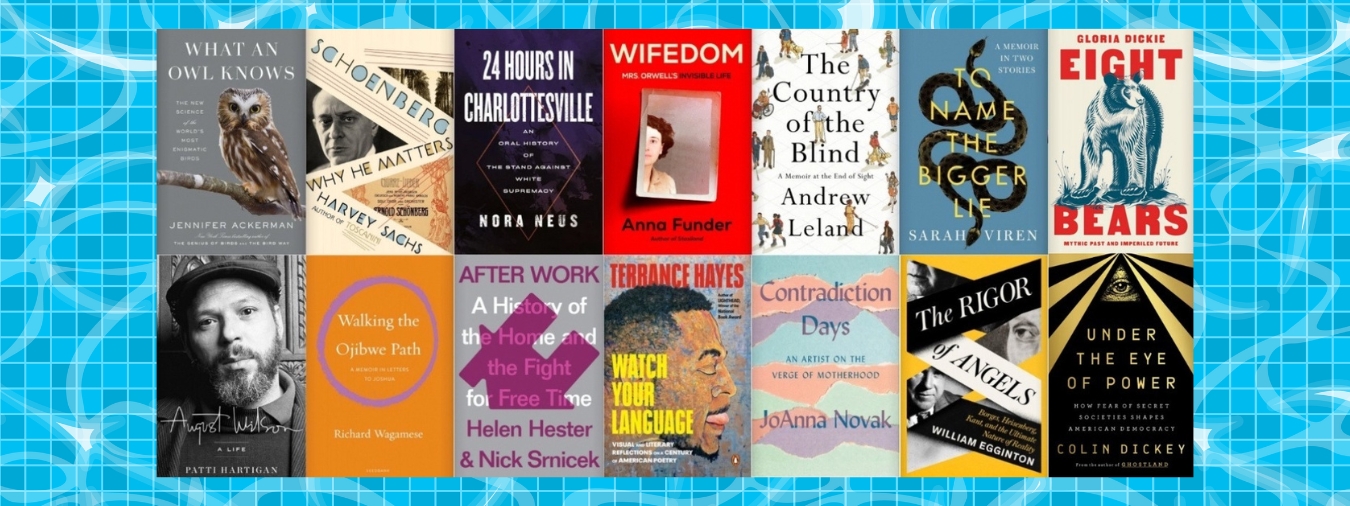25 Nonfiction Books You Need to Read This Summer: A Comprehensive List
Kernekoncepter
The author presents a diverse selection of 25 nonfiction books for summer reading, aiming to provide both entertainment and enlightenment to readers.
Resumé
This content provides a detailed list of 25 recommended nonfiction books for summer reading. Each book is briefly summarized, highlighting its unique focus and appeal. From memoirs to historical accounts, the selection covers a wide range of topics and genres, catering to various interests. The content emphasizes the importance of delving into nonfiction literature during the summer months for both enjoyment and intellectual growth.
Tilpas resumé
Genskriv med AI
Generer citater
Oversæt kilde
Til et andet sprog
Generer mindmap
fra kildeindhold
Besøg kilde
lithub.com
25 Nonfiction Books You Need to Read This Summer
Statistik
Last Call at Coogan’s started with a 2018 New Yorker article.
Revolutionary Spring discusses Europe's revolutionary thinking in 1848.
To Name the Bigger Lie explores truth and conspiracy.
Rocky Mountain High narrates a tale of boom and bust in the New Wild West.
Henry at Work delves into Thoreau's thoughts on different kinds of work.
What an Owl Knows reveals intriguing facts about owls.
Who Will Build the Ark? presents proposals for climate strategy.
Tabula Rasa offers incomplete stories by John McPhee.
How We Do It features Black writers discussing craft and skill.
Evidence of Things Seen examines true crime narratives in an era of reckoning.
Citater
"Thoreau had a lot of thoughts about different kinds of work." - Henry at Work
"We have it in us to save the world, we just have to do it." - A Wild Promise
Vigtigste indsigter udtrukket fra
by kl. lithub.com 05-25-2023
https://lithub.com/25-nonfiction-books-you-need-to-read-this-summer/
Dybere Forespørgsler
How can society redefine the meaning and purpose of work post-Covid?
In the post-Covid era, society can redefine the meaning and purpose of work by shifting focus towards a more balanced approach that values free time and personal fulfillment. Authors like Helen Hester and Nick Srnicek in "After Work" suggest reevaluating the concept of free time, especially in light of remote work trends. By examining domestic responsibilities as a form of labor, they highlight the need to address how individuals spend their non-working hours. This redefinition could involve advocating for policies that promote leisure activities, self-care, and overall well-being outside traditional work hours. Additionally, exploring philosophical perspectives on labor, such as Thoreau's views on different types of work in "Henry at Work," can help reshape societal attitudes towards productivity and success.
What are some potential drawbacks or criticisms regarding the proposed climate strategies?
While proposals like those featured in "Who Will Build the Ark?" offer compelling alternatives to mainstream climate change solutions, there are potential drawbacks and criticisms to consider. One criticism may revolve around feasibility and implementation challenges associated with radical changes suggested in eco-austerity or eco-socialism models. Critics might argue that transitioning to these new systems could disrupt existing economic structures or lead to unintended consequences for certain industries or populations. Moreover, debates over resource allocation, political willpower, and global cooperation could hinder effective adoption of these strategies. It is essential to address these critiques through thorough analysis and stakeholder engagement when considering large-scale climate interventions.
How does the exploration of blindness in "The Country of the Blind" contribute to broader societal discussions?
Andrew Leland's memoir "The Country of The Blind: A Memoir at The End Of Sight" offers a poignant exploration into blindness that contributes significantly to broader societal discussions surrounding disability awareness and acceptance. By sharing his personal journey with retinitis pigmentosa, Leland sheds light on cultural perceptions about blindness while delving into historical contexts related to blind communities' experiences throughout history.
Leland's narrative prompts reflections on inclusivity practices within society concerning accessibility measures for individuals with disabilities.
Through his introspective examination intertwined with research on blind pioneers' contributions across various fields,
Leland encourages readers to reconsider preconceived notions about sight loss
and advocates for greater empathy,
understanding,
and support for individuals navigating similar challenges.
This memoir serves as a catalyst for fostering dialogue
and promoting positive shifts in attitudes towards disability rights
and accommodations within broader social frameworks
0
